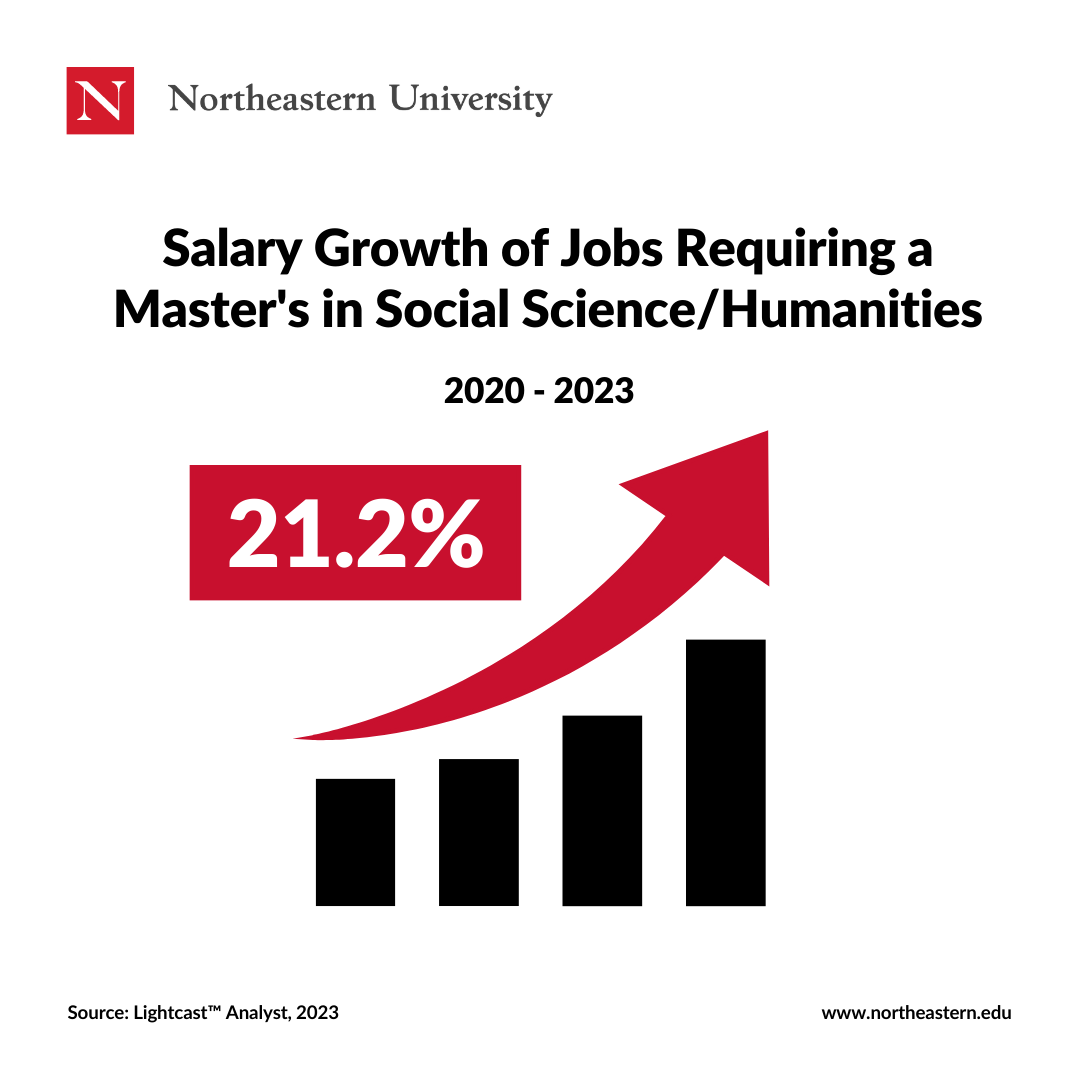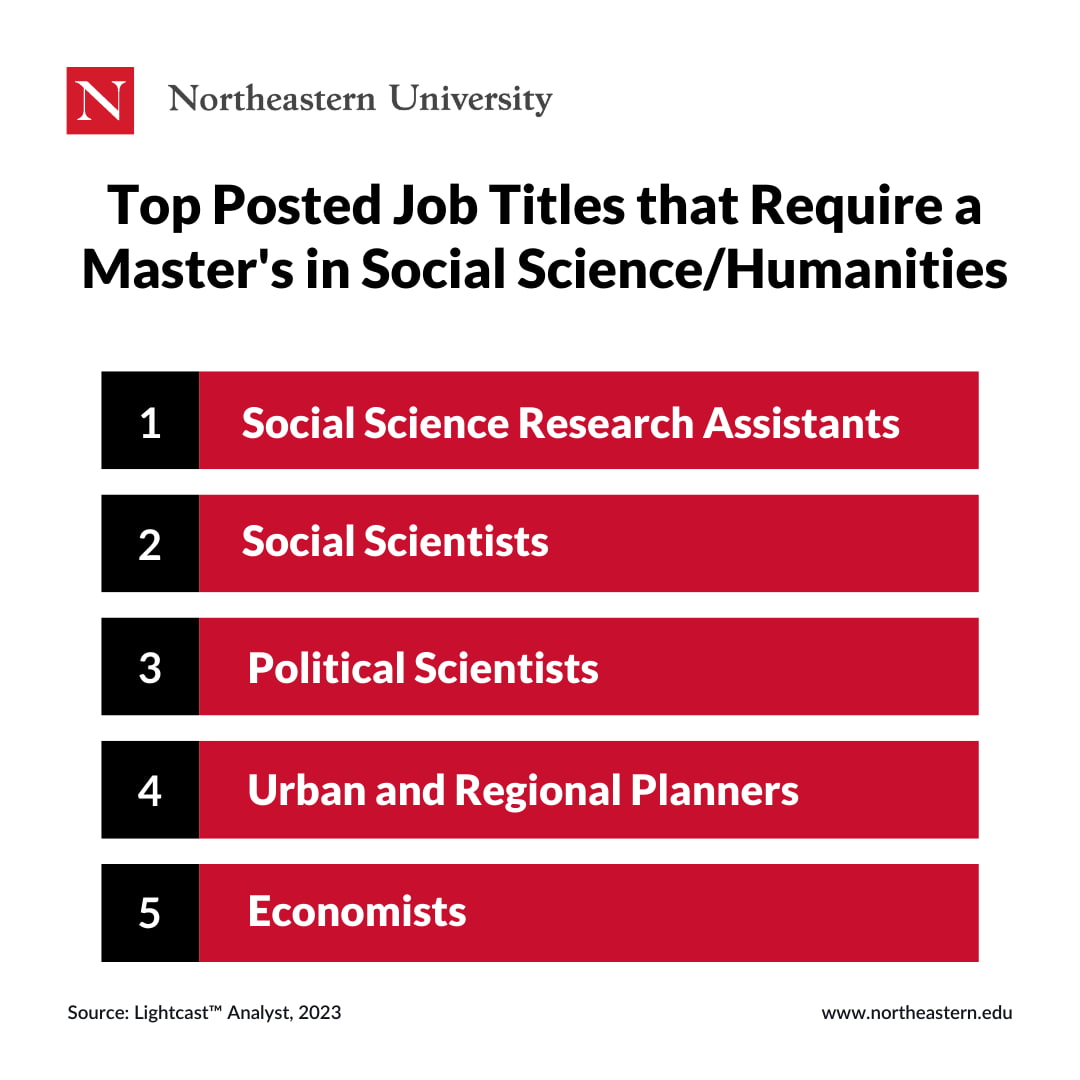The value of an advanced degree in the social sciences and humanities has been under a lot of scrutiny recently.
The reality, however, is that advanced education in these areas is applicable to diverse career options that give you the skills needed to address the world’s biggest challenges. For example, while climate change requires various types of scientists, it also requires urban planners, environmental economists, and public policy analysts—all of which have a background in the social sciences.
If you’re considering advancing your education, here’s an overview of the value of a graduate degree in the social sciences and humanities, what you can do with it, and why earning a social sciences or humanities degree is worth it.
Degree Options
There is a diverse range of social sciences and humanities programs available at all educational levels, and each one can bolster your earning potential, skill set, and marketability.
If you’re choosing to advance your studies, a certificate program or master’s degree is likely the best option since it opens the door to additional educational paths, like a PhD.
At Northeastern University’s College of Social Sciences and Humanities, for example, certificate programs can be incredibly valuable to your overall education because they can be seamlessly incorporated into a master’s-level curriculum. Not only that, a certificate can be completed in less time with far less financial commitment, giving you the ability to test out a program/topic before committing to a full degree.
One of the unique features of an advanced degree in the social sciences and humanities is the broad skill set it provides students. Northeastern’s interdisciplinary approach, for example, is incredibly valuable because it can help you better understand how these skills fit into different career paths. Not only that, you’ll learn alongside people outside of your discipline.
Some of the graduate degrees you can obtain in the social sciences and humanities include:
- Applied quantitative methods and social analysis: Focuses on studying and addressing vital questions surrounding equity, hierarchy, social organization, and social systems.
- Criminal justice: Addresses the challenges in the criminal justice system and common ethical concerns to help improve societal justice.
- Economics: Provides a foundation of economic principles, theory, and quantitative methods.
- English: Develops skills in writing, literature, rhetoric, and composition while enhancing analytical and literary prowess.
- History: Provides an overview of world or public history, depending on the specific concentration selected.
- International Affairs: Increases awareness of events impacting the world while preparing future leaders to address these challenges.
- Political Science: Prepares future political scientists in government and politics, comparative politics, international relations, public policy, or security studies, depending on the selected concentration.
- Public Administration: Develops the skills and qualifications needed to become leaders and managers focused on serving the public good.
- Public Policy: Prioritizes data analysis and evaluation to address public issues, formulate effective policies, and assess program efficacy.
- Security and Resilience Studies: Shows how to make municipalities, cities, and organizations more resilient to future shocks (e.g., terrorism, climate change, pandemics).
- Urban Informatics: Marries the social sciences and technology, applying big data and data techniques to urban city challenges.
- Urban Planning and Policy: Encourages the development of potential solutions to problems impacting urban environments.
Despite the variety of degree programs a social sciences and humanities school offers, the value of this education is nearly the same across the board—even for programs that you wouldn’t traditionally associate with a master’s degree.
For example, while a master’s degree in history may seem unnecessary, our analysis of job postings data shows that 85 percent of historian job postings prefer or require this level of education.
As a result, earning a master’s degree in a social sciences and humanities field can be incredibly beneficial to your personal and professional goals. Here’s a closer look at the return on investment (ROI) you can expect before you decide to apply.
ROI of a Graduate Degree in the Social Sciences and Humanities
For many, the major obstacle to earning a master’s degree in any field is cost. According to a 2021 report, 51 percent of students dropped out of their higher education program because they couldn’t afford it. This doesn’t even consider the professionals who weren’t willing to invest in their initial enrollment.
However, there are several aspects of a social sciences and humanities master’s degree that can help you recoup your investment post-graduation.
According to our analysis of job posting data, professionals with a graduate degree in the social sciences and humanities made a median advertised salary of $81,800 per year in 2022.

In addition, graduates from these programs can expect high earning potential long term since these wages have been trending upward by 21.2 percent from 2020 to 2023.

It’s important to remember that this number varies based on the specific program and career path you choose, though. For example, those pursuing a master’s in political science can earn upwards of $125,000 annually, while graduates of advanced economic programs can earn over $105,000 per year depending on the job title.
Advancing your education doesn’t just increase your salary: It also acts as a valuable stepping stone to advancing your career or even finding a new career path you hadn’t anticipated pursuing.
What Job Opportunities Are Available?
There’s a wide range of programs in the social sciences and humanities. It’s important to keep in mind that the interdisciplinary aspect of these programs allows you to apply your knowledge to a wide range of positions.
However, according to our analysis of job postings data, here are the most job titles of graduates from a social sciences and humanities master’s degree program:
- Social Science Research Assistants
- Social Scientists
- Political Scientists
- Urban and Regional Planners
- Economists

Not only are these the most common career paths for graduates from a social sciences master’s program, they also predominantly require an advanced education. For example, 91 percent of political scientist job postings prefer or require a master’s degree, while up to 68 percent of economist job postings prefer or require a master’s degree.
This isn’t to say that you won’t be able to find employment without a master’s degree, but advancing your education can broaden the positions you’re able to apply for and help you stand apart from other applicants. In fact, our analysis of program data found that 38 percent of job postings related to social sciences and humanities preferred or required a master’s degree in 2022. If you’re serious about a career in a social sciences or humanities field, it’s in your best interest to deepen your knowledge with additional education after receiving your bachelor’s degree.
Top Industries in Social Sciences and Humanities
A social sciences degree offers a multitude of career paths across diverse industries, providing numerous opportunities to apply your knowledge and skills to unique professional roles. This is largely because it provides a deep understanding of human behavior, decision-making, and societal dynamics, which are foundational to any field involving people.
Our analysis of job postings data in the social sciences and humanities confirms this, spanning several sectors of business, including the government, education, and business consultation. The extensive application of skills learned from these degree programs can apply to almost any industry in some capacity—especially if the program emphasizes interdisciplinarity.
For example, earning a degree in economics provides opportunities for skills development that’s important for a variety of professionals, including journalists, project managers, and executives. While an economics degree focuses on developing technical skill sets like mathematics and economics analysis, it can also enhance valuable soft skills, such as research, data collection, and collaboration.
Advance Your Education in Social Sciences and Humanities
If you’re on the fence about earning a master’s degree in the social sciences and humanities, remember to choose a school that gives you the best chance to succeed in a variety of careers.
Northeastern University’s College of Social Sciences and Humanities takes an interdisciplinary approach to education, preparing students to apply skills from their degree to a variety of career paths. Some additional benefits of earning a master’s degree from Northeastern include the emphasis on experiential learning, a large number of co-ops, and unlimited access to university research.
If this pathway is one that interests you, consider checking out the various degree options available at Northeastern in the social sciences and humanities. There, you’ll learn about what policy can and can’t do, and how you can work to solve the most pressing social challenges. No matter which program you choose, you’re going to get experience, rather than just classroom instruction, to help you understand how these strategies work in the real world.






Related Articles
Compliance Specialists: Who They Are and What They Earn
Science or Science Fiction? The Future of Personalized Medicine
In-Demand Biotechnology Careers Shaping Our Future